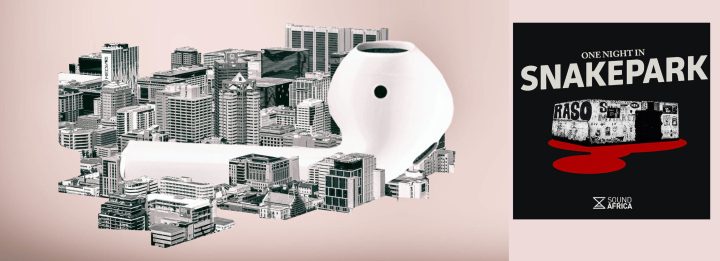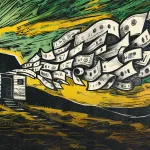PODCAST REVIEW
Looking in the mirror: How One Night in Snake Park forces South Africa to grapple with xenophobia

This homegrown investigative podcast series digs deep into a single murder case while simultaneously exposing the forces that have incubated xenophobic violence in South Africa for decades.
As xenophobic violence once again threatens to boil over in our country, it feels like history is repeating itself. Since 2008, South Africa has been gripped by outbursts of violence against immigrants from African and Asian countries with sinister regularity. The protest march to the Nigerian and Zimbabwean embassies last month is just the latest in a now familiar trend of scapegoating foreign nationals for South Africa’s woes. Woes that are in sharp relief as the country struggles with the Covid-19 pandemic and associated economic recession.
How did xenophobic violence become South Africa’s go-to pressure-release valve? This is the question that One Night in Snake Park attempts to answer through investigating the spark that ignited one such wave of attacks: the 2015 murder of 14-year-old Siphiwe Mahori in Soweto. This newest offering from Sound Africa asks us to take a look in the mirror and grapple with the roots of xenophobia in South Africa.
***
One Night in Snake Park – Sound Africa
Format: Series
Length: 6 episodes, each between 24 and 38 minutes
Year: 2020 – currently being released
Listen on: Pod Link, Radio Public, Apple Podcasts, Spotify, or any other podcast app or streaming service
Perhaps one of the greatest joys of listening to a local podcast is entering a familiar soundscape. Right from the opening scene, One Night in Snake Park delivers a strong sense of place through its sounds and voices. We listen to the wind blowing in the narrow alleyways and the metallic pops as corrugated roofs expand in the sun. We hear a group of local neighbourhood children beatboxing for the microphone and a fruit seller describing her wares: “apples, pears, oranges, naartjies, avocados and bananas”.
It’s a snapshot of the community that surrounds the Waka Waka shop in Snake Park at the edge of Soweto. It’s a tranquil scene, but not all is as it seems as reporter and host Eliot Moleba reminds us: “Normally, customers just walk in and browse through the shelves and pay for their goods at the back of the shop. But today things are different. No one is allowed inside. Instead cash and groceries are passed through thick iron bars at the entrance.”
This scene is a reminder of the violence that haunts the Waka Waka shop and many others like it across South Africa. It was here in 2015 that 14-year-old Siphiwe Mahori was shot and killed and a Somali shopkeeper was arrested for his murder. The shooting sparked a wave of xenophobic violence that, over the next few days, would result in six more deaths and over 150 arrests.
The series investigates what happened on the day that Siphiwe was shot and tracks the case against Yusuf – the man accused of his murder. Early on in the years-long reporting process the team realized that things weren’t adding up. Things became ever murkier when they received a tip-off from somebody inside the criminal justice system who said that something was seriously wrong with the case and that they needed to look into it.
Someone had to be lying, but who? And why?
On its surface, One Night in Snake Park might be described as a true crime podcast, but that categorization doesn’t sit comfortably with Rasmus Bitsch, one of the producers of the series. “It’s a story about violent structures rather than simply violent people,” he says. And South Africa is certainly a land constructed from violent structures.
From police corruption and brutality that leads communities to take the law into their own hands to apartheid spatial planning that purposefully created food deserts in townships making conditions ripe for the rise of spaza shops and the informal economy to fill the gaps. These underlying systems are the backdrop of the series, expanding the circle of culpability beyond just the man who fired the gun.
One of the challenges in making an investigative journalism podcast, Bitsch explains, “is striking a balance between being entertaining and being informative”. There is so much ground to cover and the series relies on a lot of narration to tie it all together. Guided by Moleba, we huddle in the dark hull of a boat alongside Somali refugees, we walk next to a nyaope boy hustling to get his next fix and we reminisce with Siphiwe’s father, Dan Mahori, about his days as a MK recruit training in Angola, China and Russia. The magic of good audio storytelling is that we’re invited to linger for a while in someone else’s experience.
One Night in Snake Park holds up a mirror and forces us to grapple with the tensions and violence constantly brewing just below the surface in South Africa.
Read more about One Night in Snake Park in Daily Maverick here. ML/DM
Podcast’s credits: One Night in Snake Park was created by Rasmus Bitsch, Eliot Moleba and Tanya Pampalone with original score by John Bartmann.
Disclaimer: The author of the article heard earlier versions of the first two episodes of this podcast series and provided feedback notes to the creators.
Missed last week’s edition? Click below to read it:
Why you should listen to ‘Two Minutes Past Nine’: it traces the rise of far-right extremism



















Comments - Please login in order to comment.